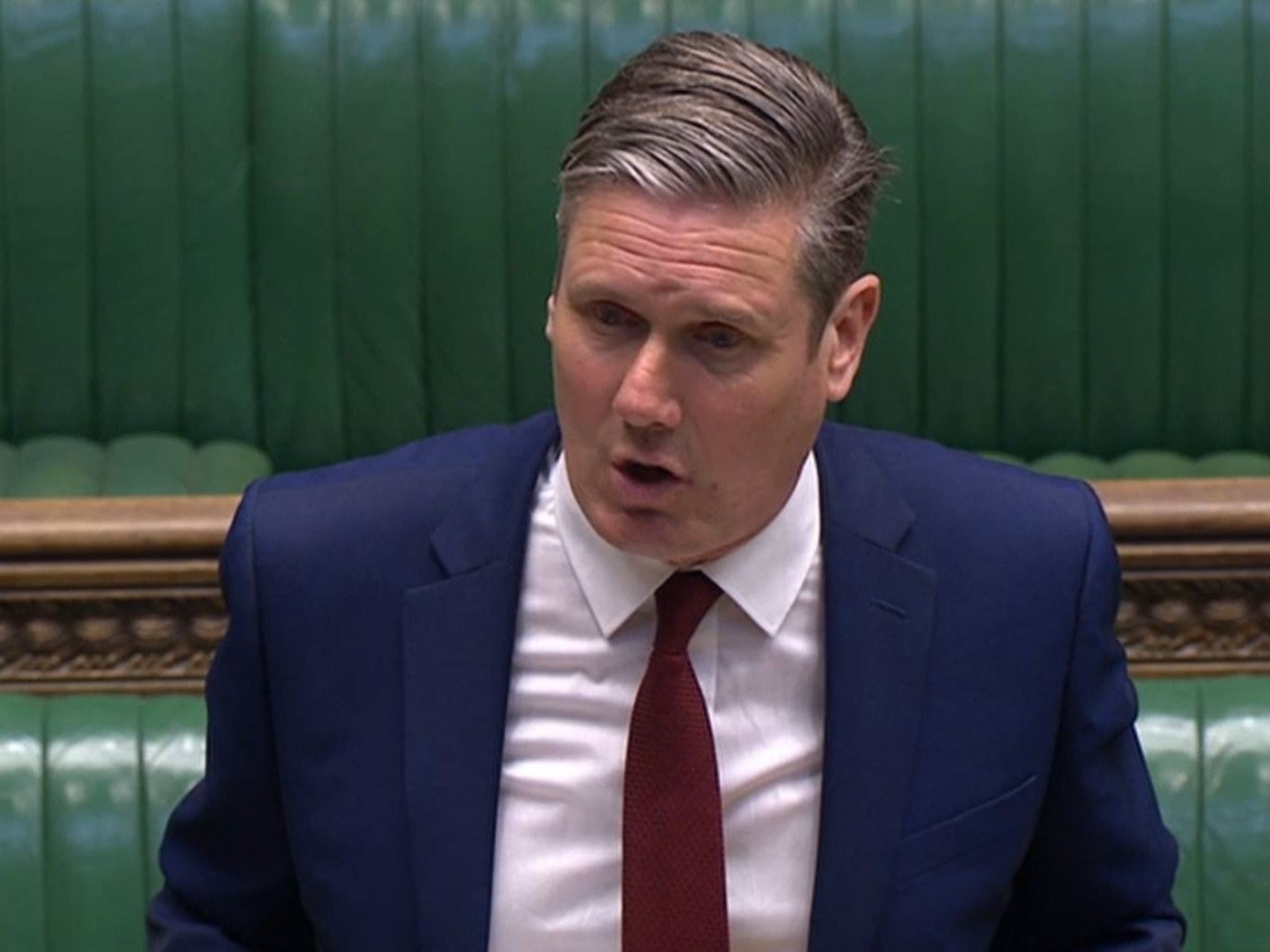Keir Starmer turned a tricky PMQs into an opportunity to make his differences with Jeremy Corbyn clear
Having run as the unity candidate who stood by every item of the Corbynite manifesto, the Labour leader is now emphasising that he represents a sharp break with what went before, writes John Rentoul


Sir Keir Starmer faced a dilemma at the last Prime Minister’s Questions (PMQs) before the parliamentary recess. If he raised the Russia report, Boris Johnson was bound to throw back the previous Labour leader’s refusal to condemn the Russian government for the Salisbury poisonings. But if he asked about, say, the fate of the Uighur in Xinjiang, it would look as if he were afraid of discussing the big national security issue of the day.
So he deserves some credit for taking the dilemma by the horns and asking about the “extremely serious report by the Intelligence and Security Committee” published yesterday and demanding to know why, if it was completed nine months ago, the prime minister had sat on it for so long.
Johnson’s reply was as Labour’s team must have known it would be. He said Starmer “sat on his hands and said nothing while the Labour Party parroted the line of the Kremlin when people in this country were poisoned”.
Starmer, who does righteous indignation quite well, was righteously indignant. “I condemned what happened in Salisbury and I supported the then prime minister on the record, so I ask the prime minister to correct the record and withdraw that.”
Johnson naturally did no such thing and repeated the charge, adding that “I didn’t hear him criticising the leader of the opposition”. Although Jeremy Corbyn’s name wasn’t mentioned, this session of PMQs was all about him.
“I spent five years as director of public prosecutions working on live operations with the security and intelligence services,” said Starmer, emphasising how different his background is from his predecessor’s. He accused Johnson of delaying new national security legislation – a line of attack that echoed his familiar theme, that the prime minister has been too slow to respond to the coronavirus crisis.
Johnson responded by saying his opponent was typical of “Islingtonian Remainers” who have seized on the Russia report because they cannot bring themselves to accept the EU referendum result. He went back to his familiar theme, accusing Starmer of having “more flip flops than Bournemouth beach”.
Starmer dismissed this as “pre-prepared gags about flip flops” in a pre-prepared riposte, and then had a pre-prepared put-down of his own. “This is a former columnist who wrote two versions of every article,” he said, referring to Johnson’s draft Leave and Remain columns of February 2016, before delivering his pre-prepared sound bite: “In case the prime minister hasn’t noticed: the Labour Party is under new management.”
Thus he turned a dilemma into an opportunity. Given that he had to face the Russia question head-on, Starmer used the predictable and prepared dialogue to deliver one of his key messages. Having run as the unity candidate who stood by every item of the Corbynite manifesto, he is now emphasising that he represents a sharp break with what went before.
It wasn’t entirely comfortable, because he was a loyal member of the shadow cabinet even while Corbyn was suggesting sending a novichok sample to Moscow so that Russian experts could tell us where they thought it might have come from.
He took as much of a different line then as was compatible with collective shadow cabinet responsibility, but he takes a completely different line now. He responded to the allegation made by the prime minister, who I think went off script on this one, although it might have been deliberate, that Corbyn had taken money for appearing on Russia Today, the Kremlin propaganda channel. Corbyn has appeared on Russia Today, but I don’t think he has declared any payments from it – Johnson may have confused this with the payments Corbyn received from Press TV, the Iranian state broadcaster. Starmer declared: “No frontbencher of this party has appeared on Russia Today since I’ve been leading this party.”
He even managed to throw in one question at the end about the “appalling persecution” of the Uighur Muslims in China, although he got confused himself, saying Labour supported the government in its “strong condemnation of Russ– er, China”.
Along with the settlement and apology to former Labour staff libelled by the party under Corbyn, this was as much of a rebrand as sticking the word “New” in front of “Labour” on the party conference backdrop in Blackpool in 1994.
Join our commenting forum
Join thought-provoking conversations, follow other Independent readers and see their replies
21Comments